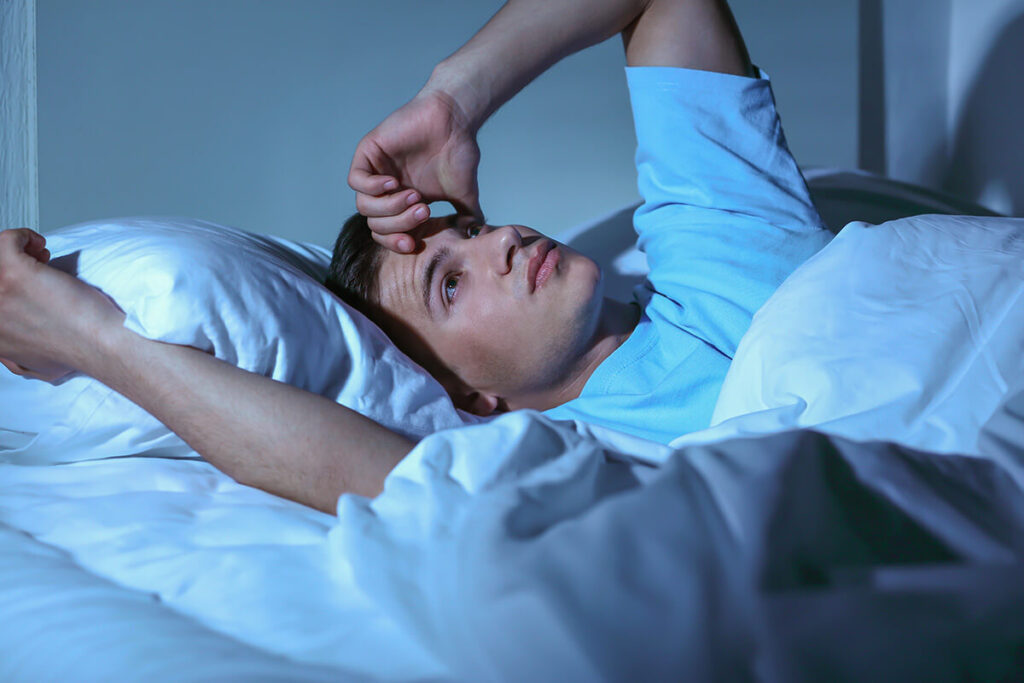Do you struggle with poor sleep quality? You’re not alone. According to the CDC, 1 in 3 adults doesn’t get enough sleep. Moreover, the American Sleep Association reports that 50-70% of adults have a sleep disorder. Do you have trouble sleeping and a more difficult time seeing the positive side of things? According to a new study published in the journal Depression and Anxiety, there is a link between poor quality sleep and pessimism. The link is especially strong if you suffer from anxiety disorder or a major depressive disorder, say researchers from the University of Illinois at Chicago College of Medicine.
What Does the Evidence Say?
Poor quality sleep affects a specific region of the brain, called the dorsal anterior cingulate cortex. This plays a role in regulating negative emotional responses. Study participants, who had anxiety or depression (or both) as well as severe sleep troubles, were shown disturbing images of violence, from war or accidents. They were then asked to not control their reaction or to “reappraise” what they saw in a more positive light.
An example of reappraisal: Imagining a woman with a badly bruised face as an actress in makeup rather than a survivor of violence, explained researchers.
“Reappraisal is something that requires significant mental energy,” said Heide Klumpp, assistant professor of psychiatry at UIC, in a statement. “In people with depression or anxiety, reappraisal can be even more difficult, because these disorders are characterized by chronic negativity or negative rumination, which makes seeing the good in things difficult.”
Sleep Troubles: 5 Steps for Better Sleep
Shortchanging yourself on sleep can harm your recovery efforts and lead to some serious health consequences. Try these tips to set yourself up for sound slumber:
- Avoid caffeine after 3:00 pm: If it’s your habit to drink coffee all day long, this may be leading to poor sleep quality. Stop drinking caffeinated drinks after 3:00 pm.
- Create a sleep schedule, and don’t stray on weekends: If your body knows that it’s time to go to sleep, it will drop off easier. Stick to a sleep schedule. Try to get 8 hours of sleep each night.
- Make your bedroom a smartphone-free zone: Did you know that the blue light from your smartphone can keep you from falling asleep? Try to make your bedroom smartphone free. Also, take an hour before bed to be smartphone-free.
- Don’t study or work on your computer in bed: Your bed should be a place for sleeping, not a place for work. Keep your work out of the bedroom.
- Exercise earlier in the day, never just before shut-eye: When you exercise early in the day, your body will be tired out come bedtime. However, if you wait, your body will have a harder time winding down.
Depression and Anxiety Treatment at Red Oak Recovery®
Whether drug and alcohol abuse led to your depression or anxiety or you began self-medicating to escape the pain of a mood disorder, chances of successful long-term recovery are greatest when co-occurring conditions are treated together. In addition to our dual diagnosis treatments, we also treat a variety of addictions, including:
To learn more about how poor sleep quality affects mental health, or about our individualized and integrative depression treatment and anxiety treatment, call Red Oak Recovery® today at 866.457.7590.









